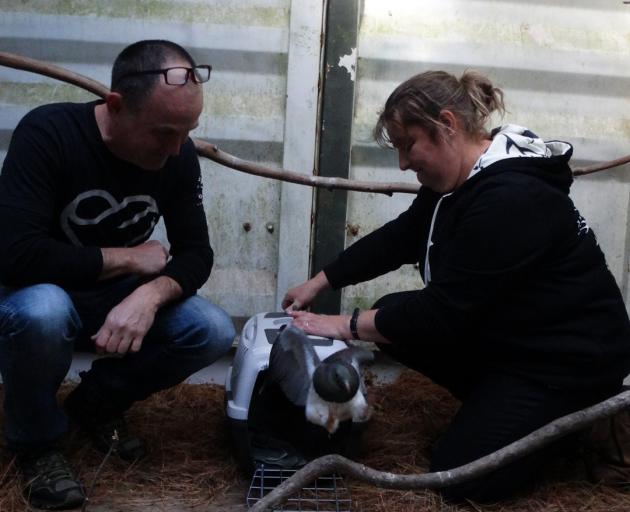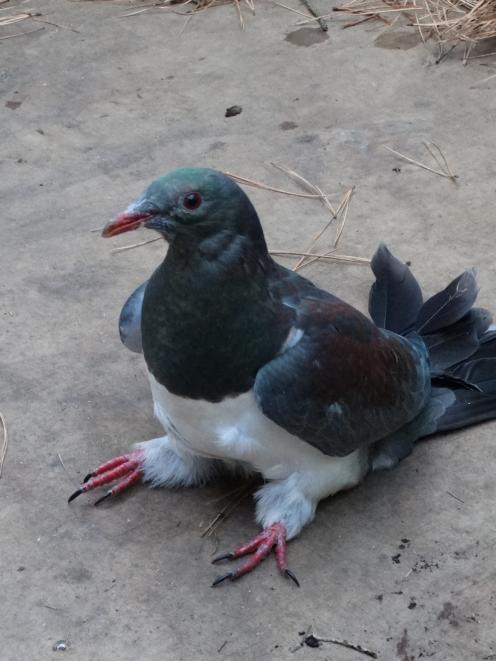
Injuries suffered by kereru are keeping Wildlife Hospital Dunedin and Project Kereru on their toes, as juvenile birds take flight across the city.
The two wildlife organisations, which work together to treat and then rehabilitate the injured birds, say window strike is a major issue for kereru (wood pigeon) - especially at this time of the year.
Project Kereru co-ordinator Nik Hurring said juvenile kereru were leaving the nest and learning to make their way in the world.

"Double-glazed windows are very reflective, or birds might think they can see a clear path to fly and hit a window instead.''
The large, heavy birds can suffer severe impact injuries from hitting panes of glass in homes or buildings, including broken clavicles (collar bones), broken coracoids (a bone in the chest) and lacerated livers.
Wildlife Hospital Trust chairman Steve Walker said the facility had cared for more than 105 kereru since it opened last year.
The kereru is the second most common patient seen at the Wildlife Hospital, after the hoiho (yellow-eyed penguin).
There are 10 kereru recovering from injuries in hospital at present, steadily munching their way through 2kg of kereru food every day, presenting an interesting challenge for volunteers.
"There are so many different fruits and vegetables to chop for kereru food that our volunteers are saying they feel like MasterChef contestants,'' Mr Walker said.
"Thankfully, kereru are easier patients than the penguins, and they all have interesting personalities.''
With so many kereru needing rehabilitation after their hospital stays, Project Kereru's three aviaries are busy, with eight kereru in residence now.
Ms Hurring said the length of stay varied from days to weeks, depending on how badly injured the bird was and whether their flight feathers had been disrupted by bandages.
Once they have recovered, the kereru are returned to where they came from and released.
Mr Walker paid tribute to the work of Project Kereru, saying it was vital to have a pathway for rehabilitation of patients once they left the hospital.
"The work they do is amazing.''
Ms Hurring said the expertise of Dr Lisa Argilla and the Dunedin Wildlife Hospital team meant kereru were receiving the best possible treatment, which improved outcomes for rehabilitation.
Ms Hurring urged homeowners with large picture windows in their homes to use ultraviolet window decals, available through Project Kereru, so the birds could see windows ahead.
BRENDA.HARWOOD @thestar.co.nz












